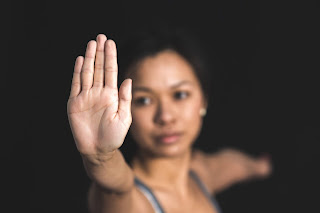What is Sexual Chemistry?
What is Sexual Chemistry?
As discussed already although chemistry can sometimes be built over time it is mostly instant and can cause confusion and feelings of guilt particularly if you are already in a relationship and yet it is important to understand that love and chemistry ate two different things if you have both then you are extremely blessed but chemistry is based more on attraction and love is focussed more on the commitment to a relationship.
So what causes chemistry to occur?
It can be a combination of many things but the most common is physical attraction,, however shared values and beliefs and the way in which you form attachments is also important.
How does Chemistry feel?
Feeling very drawn or attracted to another person
Butterfly's in your belly, struggling to breathe or sweaty palms
Struggling to focus at work or concentrate on daily tasks
Unable to sleep properly and struggling to eat
Increased heart rate, you may feel it's pounding out of your chest!
Dilated pupils, feeling an intense heat or blushing
Unable to speak properly or being lost for words
The beautiful thing about chemistry is that it is not prejudice in any way in relation to colour, sex,gender, social status or profession. Actually the interesting part about chemistry is that it is often unplanned and can occur at any time and any where. It is rarely convenient when it occurs particularly if one partner is already attached but regardless of this undoubtedly creates a euphoric feeling that is impossible to deny or supress.
When can having sexual chemistry with another cause problems?
If you are already in a committed relationship with another person and feel you are not able to manage or rationalise your feelings and emotions adequately. When this happens the person who is attached will often suddenly disappear with no warning, causing a sense of confusion for the other person when the reality of the situation is that the committed partner is feeling guilty and afraid of not being able to manage their emotions and hence losing control.
Feeling that although you are very attracted to a person that they will not 'fit in' to your social circle or be accepted by family, friends or peers, this can often happen if you are from different backgrounds or the cultural differences may be too big to ignore.
Focussing the connection entirely on the excitement of the initial spark and physical connection, ignoring any other factors or signs that will cause an unstable foundation and problems in the long term.
Relationships that have stood the test of time will naturally become less passionate as the couple start to settle and become comfortable building a life together. If a relationship is built entirely on sexual chemistry without taking the time to really get to know the other person then how will you become aware of what their life goals are and if they are compatible with yours because that is what will make a relationship last shared goals and values so you can grow together .
Finally feeling attracted to another person of the same gender, which is harmless if you are comfortable within your own sexuality as it is common to admire a quality within another but this may cause confusion if you are not as yet fully aware of your own sexual preferences.
Elizabeth Lock Holistic Therapist
www.yourcuddletherapy.co.uk heal@yourcuddletherapy.co.ukwww.yourinnerglow.co.uk heal@yourinnerglow.co.ukwww.yourtantrictouch.co.uk heal@yourtantrictouch.co.uk
www.yourcuddletherapy.co.uk heal@yourcuddletherapy.co.ukwww.yourinnerglow.co.uk heal@yourinnerglow.co.ukwww.yourtantrictouch.co.uk heal@yourtantrictouch.co.uk




Comments
Post a Comment